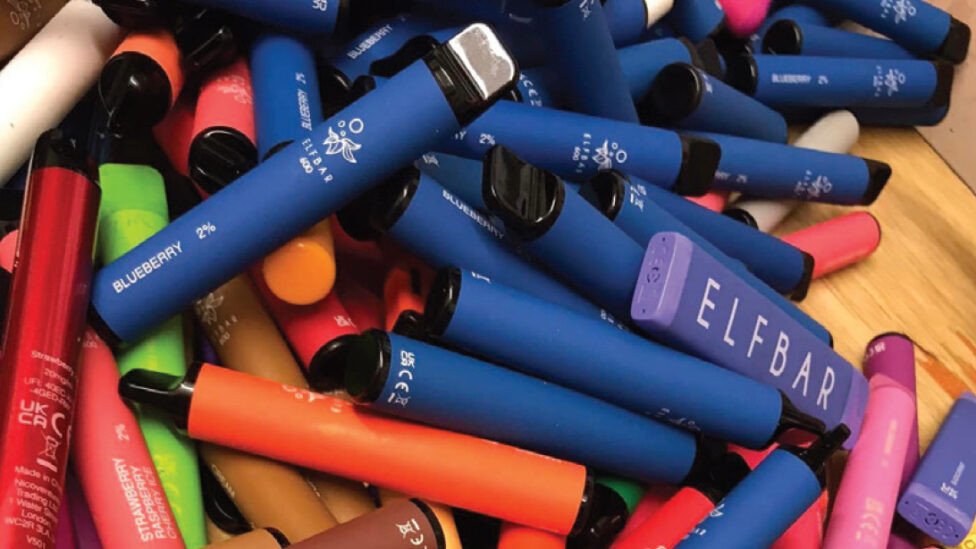Disposable vapes will be banned, alongside a raft of measures restricting the vape category to tackle youth vaping, the government has announced.
Rishi Sunak announced the measures, today, following a report in the Telegraph last week. They include a complete ban on disposable vapes, restrictions on vape flavours that are specifically marketed towards children, and plainer packaging across all vape products. There will also be changes to the way retailers can display vape lines as they will have to be moved “out of sight of children and away from products that appeal to them, like sweets”.
The changes are expected to go live at the end of 2024 or the beginning of 2025. Once the timings are confirmed, retailers will be given six months to implement it.
Announcing the measures, Sunak said: “As any parent or teacher knows, one of the most worrying trends at the moment is the rise in vaping among children, so we must act before it becomes endemic. As prime minister, I have an obligation to do what I think is the right thing for our country in the long term. That is why I am taking bold action to ban disposable vapes – which have driven the rise in youth vaping – and bring forward new powers to restrict vape flavours, introduce plain packaging and change how vapes are displayed in shops.”
Eve Peters, director of government affairs for disposable brand Elfbar, said although the company shares common ground with the government’s response to the consultation and had been working to prevent children from vaping, it was “disappointed” with the outright ban on single-use vapes.
“A recent UCL study funded by Cancer Research UK clearly shows the critical role single-use vapes play in the journey of adults seeking to quit smoking. Although we strongly support the motivation to prevent children from accessing single-use vapes, we firmly believe there are more pragmatic responses than a ban, including the introduction of a licensing scheme and on-the-spot law enforcement,” she said.
“While established industry players in the market, including Elfbar, have made substantial efforts and demonstrated significant progress in self-regulation, it is unfortunate that the actions of bad actors have clouded this distinction, making it challenging for the public to differentiate. The proposal to ban single-use vapes will help fuel the already burgeoning illegal market.”
The UK Vaping Industry Association (UKVIA) sent a letter to Sunak stating its “profound dismay and disappointment” regarding the announcement. “Banning disposable vapes instead of focusing on effective enforcement will not only fail to protect young people but will also exacerbate the situation by fuelling the black market, resulting in illicit, non-compliant, and in many cases dangerous vapes, becoming more accessible to children,” it said.
It also pointed out the negative impact the ban and the restriction of flavours will have on those using vapes to quit smoking. “We urge the government to reconsider the ban on disposable vapes and adopt a more balanced approach that prioritises effective enforcement over draconian bans. A distributor and retailer licensing scheme, as proposed to government repeatedly by the UKVIA, would achieve such an outcome without any cost to the taxpayer,” it added.
Elsewhere, vaping alternatives like nicotine pouches will also be banned for children. The pouches release nicotine, but do not contain tobacco, so they can currently be legally sold to under-18s.
The move forms part of a public consultation on smoking and vaping, which has resulted in plans for a tobacco generation ban, which will mean anyone born on or after 1 January 2009 will never be allowed to legally purchase tobacco products.






Comments
This article doesn't have any comments yet, be the first!